
8 minute read
Inside View: Legal Approach to Smart Buildings Post-pandemic
INSIDE VIEW
LEGAL APPROACH TO SMART BUILDINGS POST-PANDEMIC
DR. ATTILA UNGÁR, Partner, Lakatos, Köves & Partners Law Firm
Most of the world has lived in lockdown in the past few months and it completely changed the way people work. Nevertheless, maintaining the economy requires that many people, if not all, will inevitably be going back to work in office buildings. Could smart buildings offer solutions for a healthier and much safer workplace in the long run? They probably can, the question is at what cost.
SMART BUILDING TECHNOLOGIES POST-PANDEMIC
New ideas on “pandemic-proof” office spaces are emerging. As at airports, thermal cameras can measure the temperature of office workers at the entrance and segregate those who may be infected. Washroom sensors might track whether workers are washing their hands sufficiently. Touchless solutions and voice-mobile device control in day-to-day functions, like touching elevator buttons and door handles, will become a much higher priority. Also, the programmed control of the proper humidity level to prevent the spread of airborne germs and smart cleaning, where technology warns us that an office area requires cleaning, are all realistic options. Smart buildings might even be a tool for enforcing social distancing, as the right applications could inform users in real-time which parts of the office are safe to use and which rooms to avoid as they are too crowded.
DR. KATA MOLNÁR, Lawyer, Lakatos, Köves & Partners Law Firm

Constant space monitoring can help to ensure the maintenance of the required density levels and the even use of space.
Smart solutions might collect data not only on how and where we work within the office, but through contact tracing applications, the people we had contact with. The tech giants have already come up with applications that warn us if we were in contact with an infected person. Such contact tracing apps might also be implemented into smart buildings.
ISSUES WITH “PANDEMICPROOF” SMART SOLUTIONS
The most concerning issue with these solutions is that, in order to function, they inevitably collect a large amount of personal data, which poses a significant exposure from a privacy law point of view.
Temperature checks on entering a building necessarily involves a person’s health data, which is sensitive and highly protected. The handling of such data is permitted only in certain cases, for example if a higher, defendable interest justifies it and such handling is proportionate. On the other hand, employers must provide a working environment that does not threaten life and health. It is going to be a task for legislators to draw the line between the protection of privacy and public health; the consequences of the epidemic could prioritize the latter.
Contact tracing apps also involve the collection, processing and transmission of personal data (such as data on geographical location and health data) by the relevant software developing companies and authorities. Currently these applications can be installed voluntarily, meaning that the individuals consented to their terms and conditions. However, it could be that such applications will be installed on a person’s smart phone as a condition of entering a smart building.
Furthermore, video and other surveillance solutions that monitor office activities during working hours might also involve personal data on these person’s private life and opinion (such as political opinion, religious belief, browsing history etc.)
In order to avoid a breach of data protection regulations, smart solutions should be used strictly in line with the relevant privacy rules and all of the data should be collected and processed only to the extent necessary to achieve the purpose of processing. Individuals should be notified of the data collection and, if possible, the collected data should be anonymized to reduce unnecessary personal data processing. Furthermore, protection against unauthorized use, proper storage and documentation was never more important.
CONCLUSION
Data protection and data security rules should be considered when using these new smart solutions, as they deal with highly sensitive and large amounts of data. For these solutions to be effective, strict data protection rules will need to acknowledge that protecting health became the no.1 priority for postpandemic modern societies. Developers of smart buildings will need to find the right balance and to achieve that will need effective help from the legislator.
Continued from page 22 ► ► ►
Another regional developer, CPI Property Group, which has a Luxembourg HQ but was originally Czech-based, has delivered the 15,500 sqm Balance Hall in the Váci Office Corridor. This third phase of the Balance Office Park on Váci út brings the total space at the complex to 35,000 sqm; there remains the possibility for a fourth phase of the development.
“Delays could occur towards the end of the year, but it is still early to accurately judge the likelihood of projects pushing into 2021,” says Kovács of CBRE. “The new supply currently scheduled for 2021 amounts to 211,000 sqm, all of which is currently under construction, while the new supply expectations for 2022 is about 280,000 sqm, though the vast majority of the latter volume is still in the planning phase and is therefore at risk of kick-off delays, in addition to the actual timeline dragging out,” she adds.
In its latest built-to-suit development, Wing Zrt. is due to complete the 22,000 sqm, Univerzum Office Building, a built-to-suit project that will form the Evosoft headquarters at the Nobel Prize Winners Research & Development Park, located on the Buda side of the Rákóczi Bridge. At the same time, the company is developing the speculative, 42,000 sqm Liberty Office Building, adjacent to the Magyar Telekom headquarters it was also responsible for (another BTS project) at the intersection of Könyves Kálmán krt. and Üllői út.
In what is described by the Warsawbased GTC as the largest deal in an office building that is under construction, ExxonMobil has signed a 27,000 sqm prelease for the whole of the Pillar office building, located close to Váci út in District XIII. The LEED “Gold” accredited project is due to be delivered in the first quarter of 2022. The prelease was concluded with ExxonMobil at an early stage in the development process, thus providing the opportunity for a large amount of tenant input into the design of the project, according to GTC. Another significant prelease was around 11,000 sqm at Green Court in the Váci Office Corridor by Codic. These preleases reflect the growing confidence of tenants and the need to plan far ahead in the office market, as previously companies wanted to see a building close to completion before concluding a letting.
NO NEGATIVE IMPACT
“We have seen no negative impact from the coronavirus on the letting process so far as we have just signed a lease at Váci Greens and additional transactions are coming soon in both Váci Greens and Aréna Business
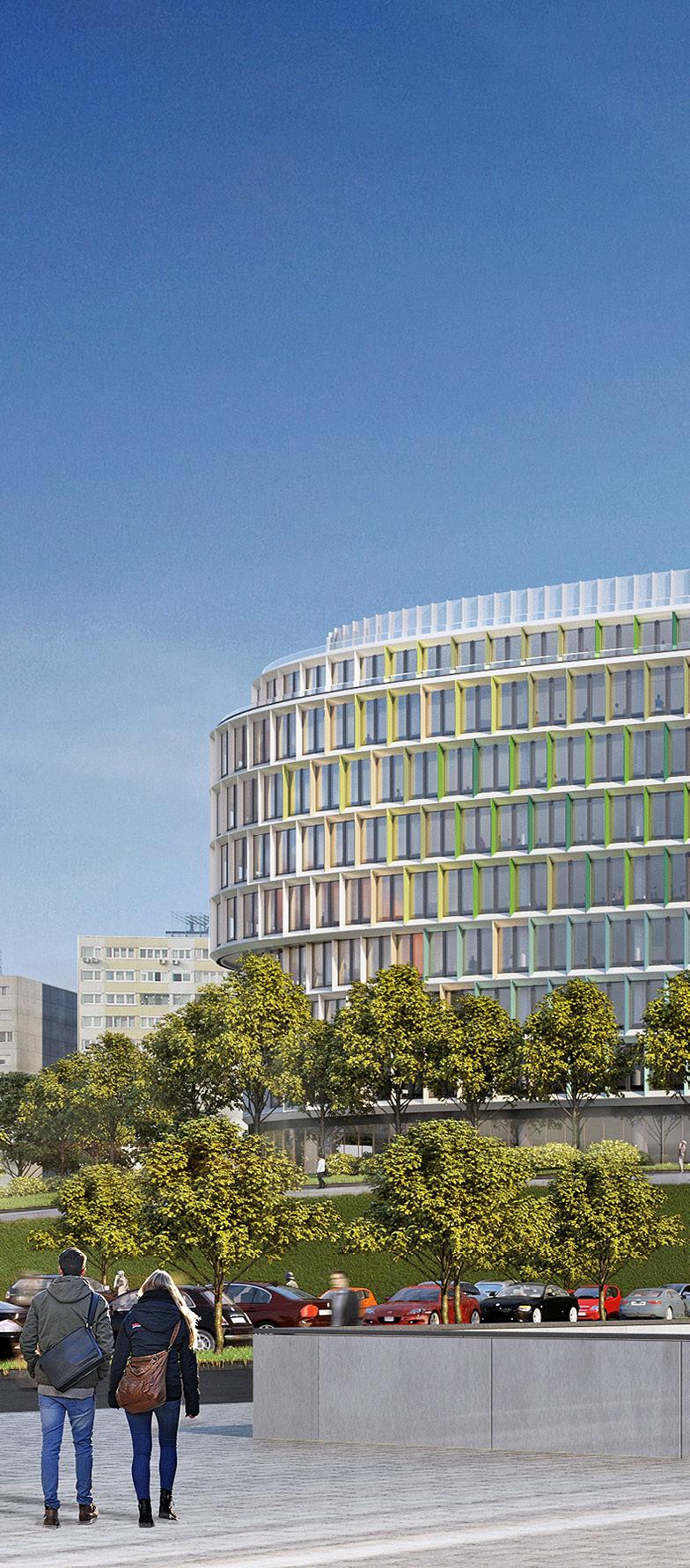
Campus. Further we are successfully maintaining our rental levels,” Atenor’s Püschl confirms.
“Definitely, there are many sectors that are already fighting to stay alive. But the office market is not expected to be deeply affected. Rentals will not decrease and demand is still there and will be there. Additionally the current home office could create a mind change effect; the importance of modern, efficient and livable working environments will be even stronger,” she argues.
Budapest One
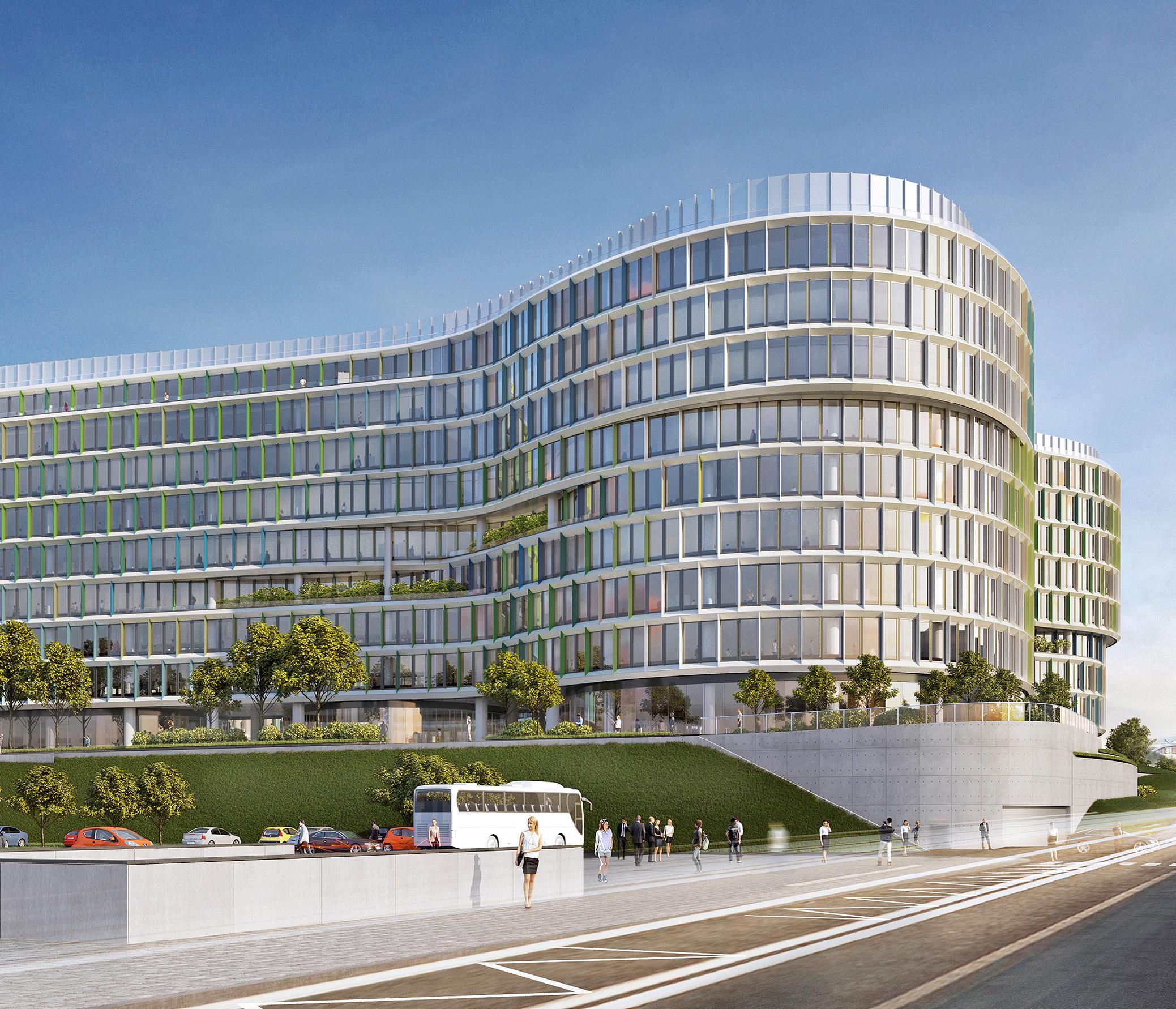
The larger deals that were ongoing before and during the COVID period are still going ahead in the view of Würsching, of JLL. “However, we see a significant slow-down in the processes and new demand is somewhat unpredictable, at least in the short-term, as companies are in the process of reviewing their real estate strategies. What we assume is that there will be a continuous demand for high quality modern buildings (with high technical standards, for example filtered HVAC supply), but the flexibility of any lease will be a key issue. Most probably, lease terms will shrink and certain opportunities will be provided for the tenants to contract or expand. The importance of flex/serviced offices will also be expected to further grow, such as developers’ ‘own brands’, for example myHive by Immofinanz,” he comments.
Skanska, too, is broadly speaking confident. “From the Hungarian office market perspective, at the beginning of the year vacancy rates were still low. Demand for office space will likely remain steady, though a greater degree of caution regarding decision making may come. We are looking forward to the situation stabilizing when the current challenging global context is more balanced. We live in dynamic times, experiencing the largest test of remote working in history. Corporates are adapting, refining and testing policies, processes and infrastructure to make it happen smoothly,” it concludes.
SUCCESS STORY CONTINUES
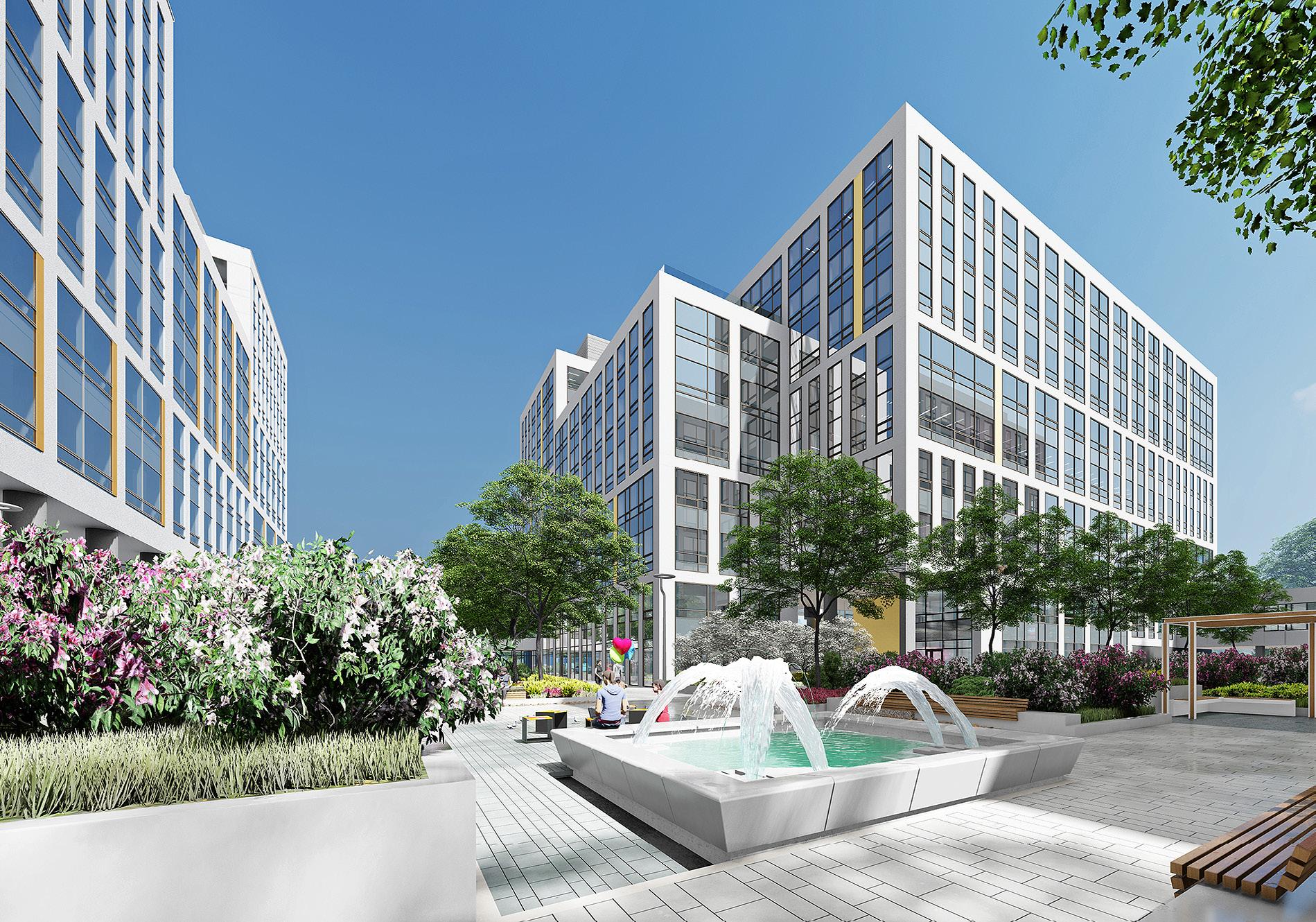
ARENA BUSINESS CAMPUS

Aréna Business Campus is providing 72,000 sq m of “A+” category office space on Hungária Boulevard.
The complex will consist of four buildings with an exceptional proportion and significance of green areas.
Excellent location: it is only 300 meters from M2 metro, and 5 minutes from Aréna Mall shopping Center. • The first, 21,000 sqm of Building “A” was completed in 2020 Q2. Building B is already under construction and will be handed over in 2021 Q2.
VÁCI GREENS E & F
A large-scale campus style development with exclusive “A+” class offices in the heart of one of Budapest’s most famous business districts
BREEAM “Excellent” green certification and an extensive green working environment
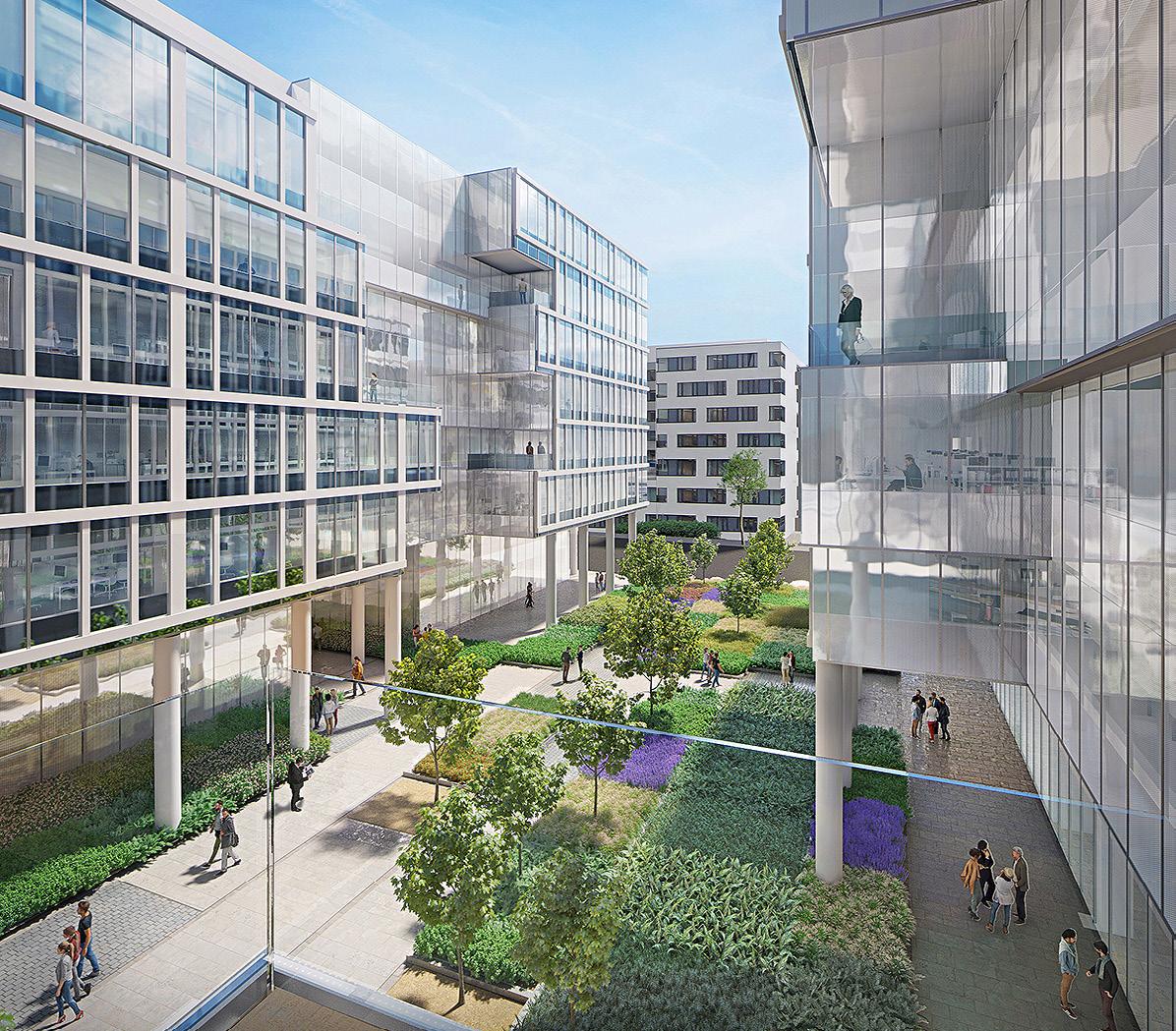
5 buildings out of the 6 is already sold (Building A, B, C, D, E). 100,000 sqm out of the total 123,000 sqm is already let. Building F was completed in 2020 Q2. Building E will be handed over in Q3 2020.
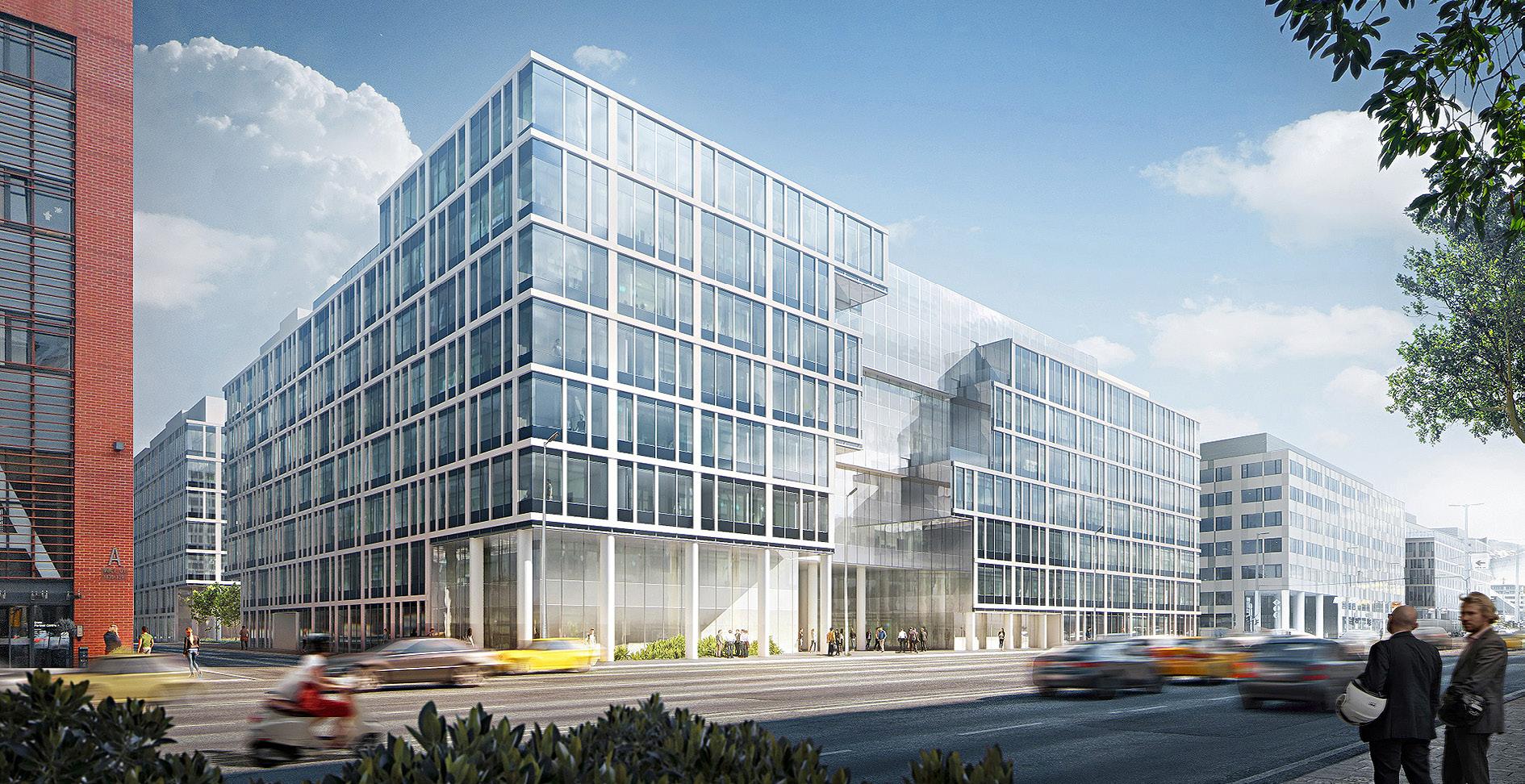
Contact:
Atenor Hungary Kft. 1138 Budapest, Váci út 121-127.
Zoltán Borbély
Country Director +36 1 785 52 08, borbely@atenor.eu
Nikolett Püschl
Development & Leasing Manager +36 1 785 52 08, puschl@atenor.eu










